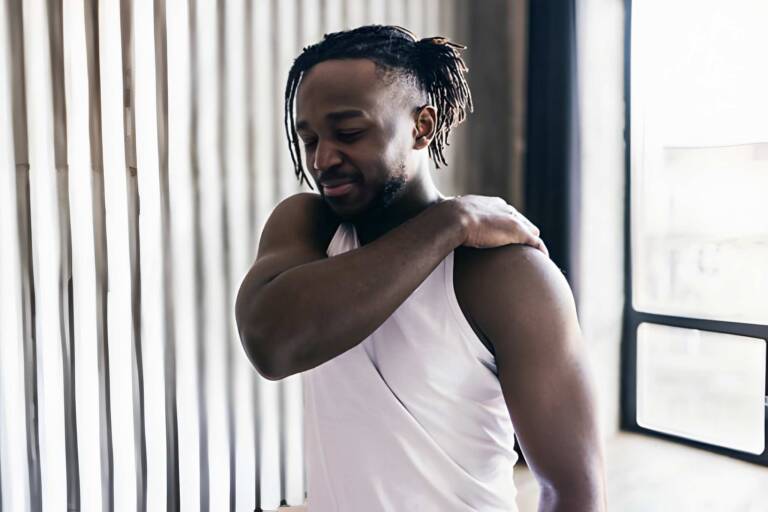When it comes to fertility, age plays a big role, but on average, people are having kids much later than in the past — some well into their 30s. There are several things you can do to naturally increase your chances of getting pregnant when you are in your 30s. Find out by reading on.
Quick Facts
Let’s start with some basic facts and move further to the solutions you might be looking for:
- You can get pregnant and be healthy even if you are in your 30s, according to multiple Mira reviews.
- But getting pregnant might be harder or take longer than when you were in your 20s.
- Making changes to your habits can help your pregnancy and sexual health.
- You can also think about non-invasive medical treatments, such as hormone tests, to help you get pregnant.
Having Kids in Your 30s
Many people have heard of the famous biological clock, which tells us how old we are when it comes to being fertile. If you want to use more technical language, your biological clock is your ovarian reserve. This is the amount of eggs you still have and, just as importantly, the quality of those eggs. Sadly, both of these things get worse with age, and they get a lot worse after your mid-30s.
It is possible to have a healthy and even easy pregnancy in your 30s, but it is important to remember that it gets harder to get pregnant and keep the pregnancy going as you age. There are a lot of different fertility methods, such as egg freezing and IVF, that can help people who have a harder time getting pregnant on their own.
Every little bit helps when you’re in your 30s and trying to get pregnant, whether you’re using fertility procedures or trying to do it on your own. No matter what age, the way you live, what you eat, how aware you are of your monthly cycle, and your mental health can all have a big impact on your ability to get pregnant. Here are some of the most important tips that can help you on your way.
Maintain a Healthy Weight
For pregnancy, it’s important to stay at a good weight. Either being too thin or too fat can mess up hormone levels, which can cause pregnancy problems or poor-quality sperm. A healthy body mass index (BMI) helps women control their periods and ovulation. For men, a healthy BMI helps keep their sperm healthy.
Make Exercising a Habit
Being active on a regular basis is good for your health and can help you get pregnant. But don’t forget that balance is important. It can be bad for you to do too much exercise, especially if you are a woman. Aim for things that aren’t too hard, like yoga, walks, or swimming.
Say NO to Smoking or Drinking
Heavy drinking and smoking can make it harder to get pregnant. There is a big difference between men and women in their chances of getting pregnant when they stop smoking and drink less.
Eat Healthy Food
A healthy, well-balanced diet full of important nutrients is good for reproductive health. On the other hand, making bad food choices can hurt fertility. Folic acid, copper, and vitamins are some of the most important foods for sexual health. Antioxidants keep sperm and egg cells from getting hurt. Fertility is improved by eating foods that are high in vitamins, good fats, and important nutrients. Berries, fresh veggies, nuts, seeds, and fish are some examples.
See Your Doctor Regularly
Regular checkups with your doctor can help find and treat any problems that might be affecting your fertility. Going to the doctor regularly can tell you a lot about your sexual health and may also show you problems that could affect your ability to have children.
Cut Down on Caffeine
Too much coffee can make it harder to get pregnant. One to two cups of coffee a day is the most you should drink.
Drink Water
Staying hydrated is very important. A lot of water helps keep the cervical mucus in good shape, which is important for moving sperm. Less water in the body can lower the number and amount of sperm.
Manage Stress Levels
Cortisol is a stress hormone that is made when the body is under a lot of stress. It can mess up reproductive hormones like estrogen and progesterone. This can make women’s periods go off at strange times and men’s sperm do not work as well. Mindfulness, meditation, and deep breathing routines are all good ways to deal with stress.
Maintain Your Sleep Schedule
Getting enough sleep is important for your health and for hormones that help with pregnancy, like estrogen, progesterone, and testosterone. If you don’t get enough or any sleep, these hormones can become out of balance, which may lower the success rate of your infertility treatment. Aim for 7 to 9 hours of good sleep every night, say experts. Sleep problems like sleepiness or sleep apnea can make it harder to get pregnant. Getting help can increase the chances of getting pregnant.
Medical Factors That May Impact Fertility
Living a healthier life and having sexual relations at the right time can help a couple get pregnant, but many people still have problems that aren’t obvious. In women, reproductive health can be affected by things like tumors and chemical issues. For men, low sperm count and movement (ability to move) can be problems. Talking to a fertility expert can give you personalized information about having trouble getting pregnant and treatment choices that can help with specific problems, eventually assisting with the goal of pregnancy.
Final Say!
It’s not enough to time sexual activity around ovulation to increase natural fertility; one must also look at their health and well-being as a whole. It’s important to remember, though, that medical treatments aren’t the only way to improve natural fertility. Each person and their journey to pregnancy is different.






